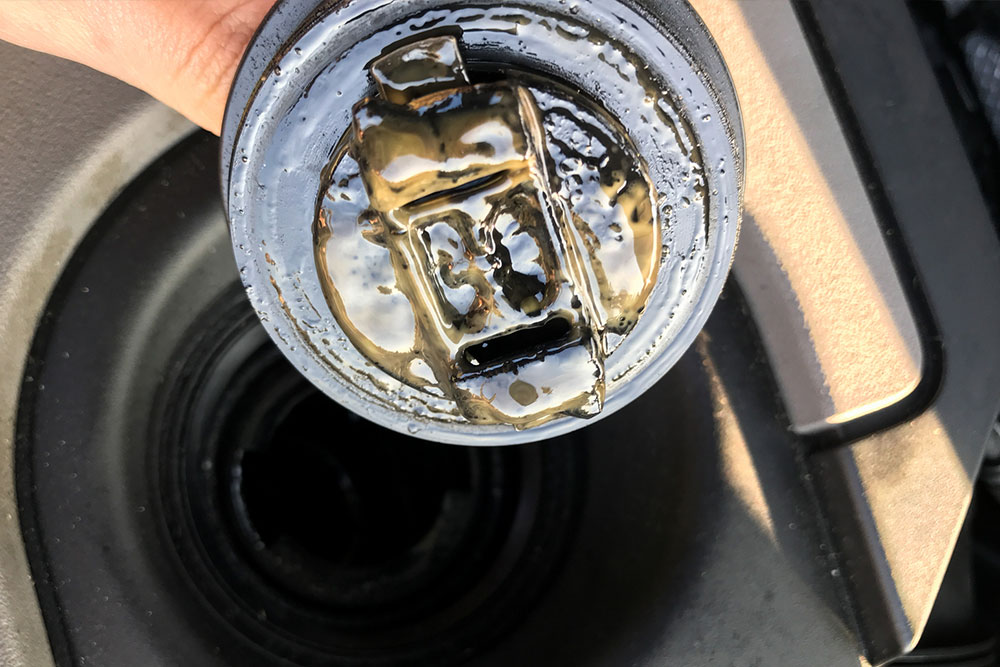
9 common oil change mistakes car owners must avoid
Regular oil changes are essential for maintaining the performance and longevity of any vehicle’s engine. A well-maintained engine ensures smooth and efficient output and extends the life of the car. However, many car owners make mistakes when it comes to these routine maintenance tasks. Something as simple as an oil change can significantly impact the performance if done incorrectly. Here are some of the most common oil change mistakes that car owners must avoid.
Neglecting the recommended oil change interval
One of the most significant mistakes car owners make is ignoring the recommended oil change interval. Every vehicle has a manufacturer’s recommendation that suggests when the oil should be changed periodically. This interval is typically based on factors like the type of oil used, driving conditions, and the specific engine design. Ignoring or extending this interval can lead to significant engine damage and decreased fuel efficiency. Check the Dodge owner’s manual and adhere to the suggested oil change schedule to keep the engine running optimally.
Using the wrong type of oil
Choosing the wrong type of oil is another common mistake that can have serious consequences for the engine. Dodge engines are designed to operate with specific oil viscosities and formulations. Using the wrong type of oil can lead to poor lubrication, overheating, and reduced engine performance. Always check the vehicle’s owner’s manual for the recommended oil viscosity and specifications to avoid this mistake. Additionally, consider the driving conditions and weather, as this may affect the type of oil best suited for the vehicle.
Forgetting to replace the oil filter
When changing the oil, owners must also consider replacing the oil filter. The oil filter removes contaminants and debris from the engine oil, ensuring it remains clean and effective while circling the engine. Over time, oil filters get clogged and less efficient, leading to decreased oil flow and potential damage to the engine. Ensure the replacement of the oil filter with every oil change. It’s an inexpensive component that is vital to maintaining engine health.
Failing to dispose of used oil properly
Improper disposal of used engine oil is an environmental hazard and illegal in many places. Many car owners make the mistake of dumping used oil down the drain or into the soil, which can contaminate water sources and harm the ecosystem. To avoid this mistake, take used oil to a certified recycling center or an auto repair shop that offers oil disposal services. They will ensure the proper and environmentally responsible disposal of the old oil.
Overfilling or underfilling the oil
Maintaining the correct oil level is critical for engine performance and longevity. Overfilling or underfilling the oil can cause problems. Overfilling can cause excessive pressure in the engine, which may lead to oil leaks and damage to engine components. Underfilling, on the other hand, can result in inadequate lubrication, leading to increased friction and wear. To avoid this mistake, use a funnel to pour the exact amount of oil recommended in the vehicle manual. Always double-check the oil level with the dipstick after adding oil to ensure it falls within the acceptable range.
Tightening the drain plug and oil filter incorrectly
Properly securing the drain plug and oil filter is crucial to prevent oil leaks and potential engine damage. Some car owners make the mistake of overtightening or under-tightening these components. When installing a new oil filter, follow the manufacturer’s instructions for tightening it. Over-tightening can damage the filter or its housing, while under-tightening may cause leaks. Similarly, when reinstalling the drain plug, use a torque wrench to achieve the correct tightness specified in the owner’s manual. Overtightening can strip the threads, and under-tightening can lead to leaks.
Not checking for leaks
After performing an oil change, checking for any oil leaks is important. Some car owners make the mistake of assuming that the job is done once the new oil is added and the components are tightened. Before driving the vehicle, visually inspect the area around the oil filter and drain plug for any signs of leakage. This simple step can prevent potential engine damage and costly repairs. Oil leaks are hazardous not only for the vehicle but also for road safety and environmental concerns.
Not keeping records of oil changes
Maintaining a record of the oil changes is vital for proper vehicle maintenance and resale value. Many car owners forget to track when they last changed the oil or what oil they used. Create a simple log or use an app to record the date of each oil change, the type and brand of oil used, and the current mileage on the vehicle. This record will help one stay on top of the maintenance schedule and provide valuable information when it’s time to sell the car.
Not getting the vehicle serviced
It is also necessary to get the vehicle serviced occasionally and check if all the oil filters and engine components are running smoothly. Replacing the oil regularly is one of the many maintenance tasks that must be done periodically. A certified technician can spot problems and ensure vehicle repairs get done professionally. It should be done irrespective of the frequency of the oil change.
Regular oil changes are a fundamental part of vehicle maintenance that should not be overlooked or taken lightly. By avoiding these common oil change mistakes, one can ensure the engine runs smoothly and efficiently, saving money on repairs and increasing the vehicle’s lifespan. Remember to follow the vehicle owner’s manual, use the correct oil, replace the oil filter, and dispose of used oil properly. Additionally, pay attention to the proper tightening of components and keep a record of any oil changes. These simple steps will help one avoid costly errors and enjoy a trouble-free driving experience for years.





